- Make It Yourself Lavender Heart-Shaped Bath Bombs!
- 20 Things You Never Knew About “Down There”
- 12 Best Foods For Those Suffering From Arthritis Pain
- 12 Personal Hygiene Mistakes Almost Everyone Makes (Mom Never Told You About #4!)
- 15 Medicinal Plants And Herbs From The Cherokee People
- 12 Mind-Blowing Benefits Of Drinking Coconut Water During Pregnancy
- 12 Outstanding Winter Foods That Won’t Fatten You Up Like A Christmas Turkey
8 Supplements Every Vegan Needs (#4 Is Easy Enough)
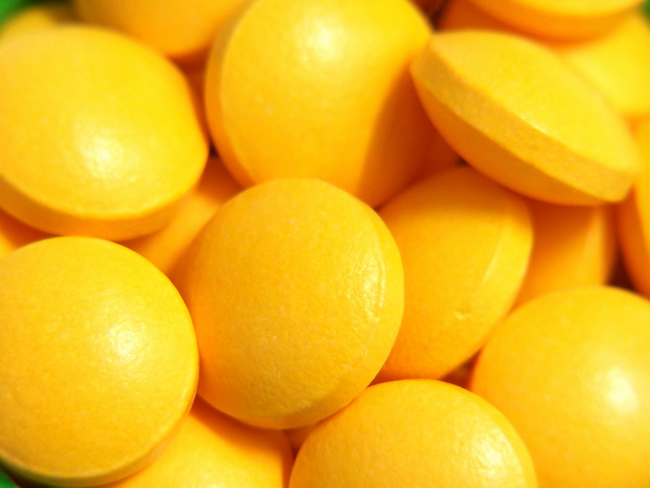
Photo credit: bigstock.com
Living a vegan lifestyle certainly has its share of health benefits, but there are some drawbacks that most vegans would like to overlook. For the sake of your health, you should take an honest look at the facts.
Vegan diets are missing crucial nutrients, such as B12 and several others. You might read on some websites that the vegan diet is the best of all diets or that it is the perfect diet for humans. You might not like it, but the truth is that a vegan diet, while it does have health benefits, is not ideal. You may have been told that vegans can meet all their requirements for B12 simply by consuming some unwashed, organic root vegetables. Or did you hear the one where they say that eating mushrooms grown in super B12-enriched soil will give you everything your body needs? Both of these myths make vegan diets look easy, but they can actually put your health in jeopardy.
Many vegans supplement B12 occasionally, thinking that this is sufficient, and then later found out that they still develop a deficiency. Some websites erroneously tell you to take occasional B12 supplements after being vegan for three years or longer, but they never tell you about specific doses, nor do they mention the problem most people have absorbing sufficient amounts of B12.
We are going to tell you the truth about the supplements that every vegan needs. The hard truth is always better than a dangerous lie. Simply because a vegan diet does not provide a couple of vitamins and minerals does not mean it is a bad diet; it simply means that it needs a little help.
Let’s take a look at the top eight supplements that vegans should be consuming and how much they need to consume. Your health is at risk if you choose to ignore these facts.
1. B12
Of course, this is one of the biggest problems with the vegan diet. B vitamins work best in combination with one another, so you might want to take a B vitamin complex, but if you only want to focus on B12, that’s fine.
The truth is that you simply cannot get enough B12 by eating unwashed organic produce or by eating foods grown in B12-enriched soil. You need between 25 to 1,000 micrograms each day or a minimum of 3,000 micrograms each week. If you have not been taking B12 supplements, and you have been on a vegan diet for one year or longer, you should start out with 2,000 micrograms each day for three to four weeks to build up your storehouse. Your body does store a small amount of this essential vitamin, but being on a vegan diet has most likely depleted it. You can get a blood test at your doctor’s office to find out your exact deficiency. B12 is essential for a healthy nervous system and for proper brain function.
Low levels will results in complications for pregnancy and can lead to anemia. In some extreme cases, B12 deficiencies have led to what people some people believed was insanity. One problem with B12 supplements is that if you are taking a type called methylcobalamin, the dosage needed will be much higher. Be sure that you are taking a cyanocobalamin supplement. Keep in mind that it is almost impossible to consume too much of this vitamin as it is water soluble, and whatever your body does not use or store will be removed via the colon.
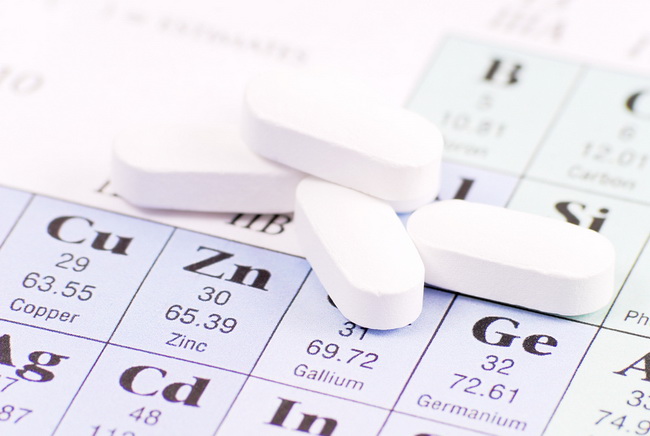
Photo credit: bigstock.com
2. Zinc
This mineral is found in every single cell in the body — it is that important. Zinc helps the body do everything from keeping your immune system strong to aiding in the reproductive cycle. Zinc is vital for a proper sense of smell and taste. Although it is true that zinc is found in many vegetable sources and in some seeds, the phytates in plants bind to zinc and therefore interfere with absorption.
Since vegans eat only plants, most of the zinc they consume is never absorbed, which is why vegans should take a zinc supplement. Our bodies do not store zinc in any way, so you need to consume sufficient amounts every day. Zinc orotate is the easiest form of zinc for the body to absorb. Zinc amounts vary depending on your age and gender. In general, females over the age of 18 need eight mgs each day and men over 18 need 11 mgs each day.

Photo credit: bigstock
3. Iron
Red blood cells use iron to transport nutrients and oxygen to every cell in the body. Insufficient amounts of iron can lead to anemia. There are two types of iron: Non-heme, which is the kind found in plants, is much more difficult for the body to absorb. This means that both vegans and vegetarians can have much lower stores of iron in their blood.
All vegans and vegetarians need iron supplements, no matter what some vegan website might tell you. Like zinc, how much iron you need will depend on your age and gender, but adult females on average will need 15 mg of iron and men need 10 mg of iron each day.
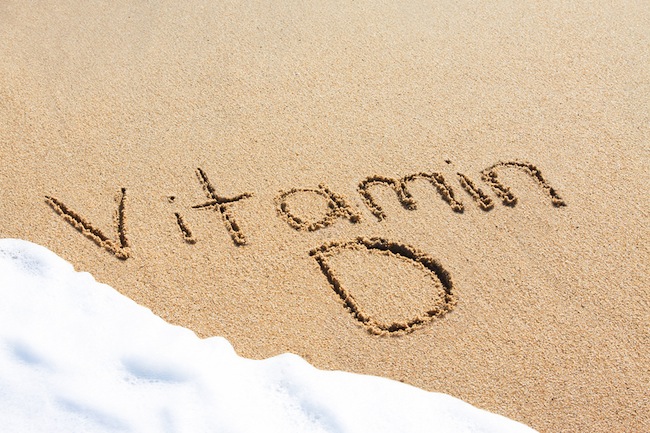
Photo credit: bigstock.com
4. Vitamin D
The truth about this vitamin is that most Americans, not only vegans, do not get enough. Vitamin D is vital for the absorption of calcium. Although calcium is easily obtained through a vegan diet, vitamin D is not. Vegans do not get any vitamin D from the foods they eat, and even omnivores will find that vitamin D is in precious few foods. Vitamin D is just as important as calcium when it comes to having healthy bones and teeth, avoiding osteoporosis, as well as fighting many other diseases.
Recent studies show that people afflicted with cancer or Alzheimer’s have much lower levels of vitamin D. You have two choices when it comes to this important vitamin — you can spend at least 30 minutes each day in sunlight, or you can take supplements. All adults need about 600 IUs each day. Some say that we need double that amount, but you don’t want to overdose on vitamin D, so stick with the recommended doses to be safe unless your doctor says you need more.

Photo credit: bigstock.com
5. Calcium
You might have heard that eating a low protein diet reduces the need for calcium in the body. This has been disproven by research again and again. Vegans might like to think that they don’t need as much calcium as others, but this is not the case. You might have been told that our ancestors did not drink milk and got all the calcium they needed from wild greens. Whether or not this is true we may not ever know for certain, but there is one thing we know: Our ancestors typically only lived to be 40 or 50 years old, well before they had to concern themselves with things like osteoporosis. We also know that today’s modern farming methods leave our vegetables with less calcium than in the last 100 years.
Even omnivores who eat dairy products and drink milk sometimes have difficulty getting enough calcium, which is why things like fortified orange juice are sold. They don’t do so as a favor to vegans; foods are fortified with calcium for vegans and omnivores alike. If you consume plenty of fortified foods as well as the recommended four cups of cooked greens every day, you might not need a calcium supplement, but most people, especially women over the age of 50, probably do. Women under the age of 50 and men under 70 will need 1,000 mgs of calcium daily. Men over 70 and women over 50 need 1,200 mgs of calcium each day.
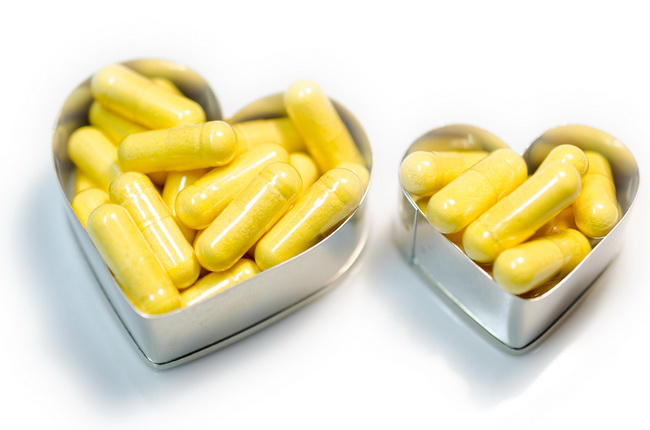
Photo credit: bigstock.com
6. Enzymes
Even omnivores can benefit greatly from extra enzymes. Proteolytic enzymes reduce inflammation and irritation in the body, and digestive enzymes help our bodies change food molecules into nutrients. An example of how this works can be seen in lactose intolerant people. By taking the enzyme lactase, they can then eat dairy products without problems.
SEE ALSO: Want to Do More than Meatless Mondays? Go Vegan in 5 Easy Steps!
Vegans and vegetarians can live without these enzymes, of course, but a non-animal based enzyme will go a long way towards ensuring that you will get the most nutrition out of the foods that you are eating. Depending on the enzymes you choose to take, you can follow the dose suggested on the label.

Photo credit: bigstock.com
7. Iodine
Every person on earth needs iodine to function. Iodine is vital for the healthy function of our thyroid gland and too little iodine can throw your entire metabolic function into chaos. Our bodies do not make iodine so you need to get it from the trace amounts found in foods or by taking a supplement. Iodine occurs only in extremely minute amounts in some plants, so unless you are consuming table salt fortified with iodine, you probably have a deficiency.
You can always have your doctor run a blood test to be sure you are getting enough, or you can take a supplement. Adult men and women need 150 micrograms each day. Pregnant women need more, but your doctor will suggest the proper amount for you.
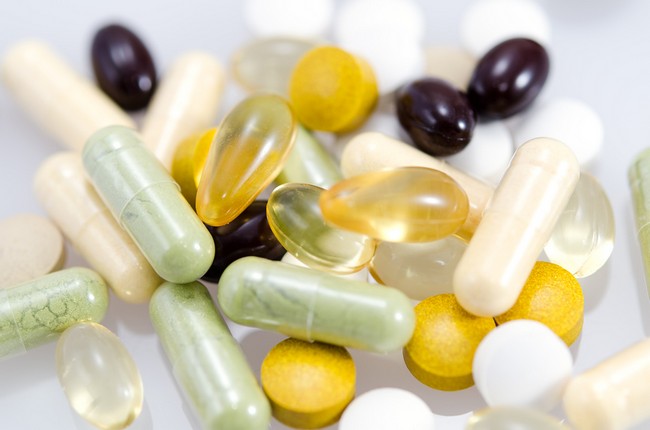
Photo credit: bigstock.com
8. DHA
This one isn’t necessary, but it is recommended for not only vegans, but almost anyone who has had depression, or is at a higher risk of developing depression (if it runs in your family, for example), you should consider taking 200 to 300 mgs each week.
If this sounds like a whole lot of supplements for someone eating the “perfect” diet, consider that omnivores, even though they get vitamin D from milk and other dairy foods, still need V12 supplements, calcium supplements, and sometimes even iron supplements. No diet is perfect, and even though vegans might need to take a few more supplements, consider it a small trade-off for your decision to have compassion for all living creatures.
References:

































Daniel Gray
Nov 16, 2015 at 3:36 pm
No such thing as a Vegan. When you sleep at night your face loses skin cells and they are breathed in via your mouth or nose and your body digests them; and if you have a partner who is sleeping in the bed with you, then you can double intake of human skin cells. So medically there is no such thing as a person who refuses to eat meat as you are eating it no matter if you want to or not.
Dont believe me? Ask your doctor and get ready for a shock!